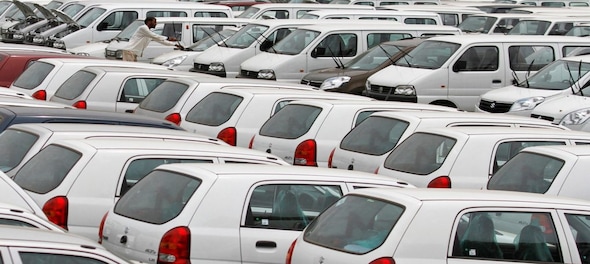
Grappling with dipping sales in the automobile industry, the auto sector was waiting with bated breath for some respite from the finance minister. The automotive sector has been the backbone of the Indian economy, and today, it is facing the biggest slowdown experienced in the past two decades. Due to lack of credit and sharp increase in costs due to the impending transition to BS VI, the demand for automobiles is at an all-time low.
One of the key expectations from the budget was to provide an indication on GST rate reduction and reduction of customs duty on certain parts for the electric vehicle (EV) industry. This would have helped reduce the cost of vehicles and thereby boost the demand to propel economic growth. However, the economic survey mentions that any such reduction would have significant impact on the overall tax collections. It also says that the GST Council has not recommended any change and the view was that the current slowdown is a temporary one attributable to reasons like lack of credit, base effect and structural impact of adoption of newer fuel standards. Against this background, the FM seems to have refrained from providing any direct sops for the automotive industry as a temporary stimulus.
The income-tax exemption provided for income of specified sovereign wealth funds for their investment in infrastructure and the removal of DDT are likely to spur investments in infrastructural projects and thereby eventually benefit automotive sector. Scheme to boost mobile, electronic manufacturing and semi-conductor packaging will help EV manufacturing and encourage newer technologies for connected cars. National Infrastructure Pipeline launched a few months ago likely to benefit commercial vehicle and construction equipment makers. It would also be interesting to study the proposed National Logistics Policy and its positive impact on the auto sector.
The government is committed to double farmers' income by 2022 and has accordingly launched 16 schemes of varying nature for the development of the rural economy. Investment in infrastructural projects helps in job creation. Thus, as an outcome of these structural changes coupled with an optional cut in the personal tax rates, the government is expecting increased disposable income in the hands of individuals (given the revenue loss of Rs 40,000 crore mentioned by the FM due to the tax rate change). Auto sector would hope that this ultimately translates into increased demand for the industry. The impact of these policies needs to be seen in the near future.
No announcement on Scrappage Policy
While on one hand, the government has stayed away from any direct sops due to limited fiscal room, on the other hand, to align with ‘Make in India’ policy of the government, overall customs duty on imported vehicles and auto parts has been increased. This would raise the price of vehicles which anyways is expected to significantly rise on implementation of BS VI technology. While this move intends to incentivise the domestic players in the sector, it is doubtful that a mere increase in customs duty would boost the domestic EV industry which currently lacks basic infrastructure. The government’s commitment to faster reaction with anti-dumping and safeguard measures if a surge in specific import categories is seen along with stricter provisions for availing FTA benefits should benefit the auto component sector including tyre makers.
A newly introduced provision requiring the sellers receiving consideration for the sale of goods of more than Rs 50 lakh in a year to a buyer to collect 0.1 percent TCS, is intended to widen the tax base. However, since the motor vehicles were already governed by a separate provision for TCS, it leads to interpretational issues regarding applicability to B2B transactions including export transactions.
Amongst the misses in the Budget, a formal incentive-based ‘Scrappage Policy’ is one key item. The industry was highly anticipating rollout plan for the Scrappage Policy to encourage the purchase of new vehicles by replacing old ones which are a major source of pollution. Further, the anticipated tax benefits for development of EV infrastructure such as for battery manufacturers, charging stations and in-house R&D also remain unattended.
Overall, the focus on infrastructure and structural changes should benefit the auto industry from a long term perspective. It is hoped that the immediate traction required for the sector is provided by increased demand from the end customers with higher disposable income and by increased investment in the domestic EV industry.
Pramod Achuthan is Tax Leader – Automotive practice at EY India. Swati Agarwal and Prasad Kulkarni, Senior Tax Professionals with EY, have also contributed to the article. The views expressed are personal.
First Published: Feb 4, 2020 6:00 AM IST
Check out our in-depth Market Coverage, Business News & get real-time Stock Market Updates on CNBC-TV18. Also, Watch our channels CNBC-TV18, CNBC Awaaz and CNBC Bajar Live on-the-go!


Stampede-like situation disrupts Rahul Gandhi, Akhilesh Yadav's joint rally in Uttar Pradesh
May 19, 2024 4:26 PM
Ladakh Lok Sabha election: With Independent candidate's entry, it's now a 3-way contest for BJP and Congress
May 19, 2024 4:01 PM

